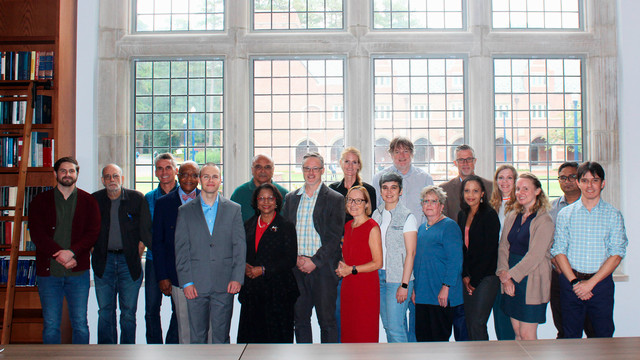
Jepson Faculty: Defining Leadership Studies
Leadership moves the world. That's why it's important, why we study it, and why we strive to do it well. At its core, leadership is about human beings coming together to accomplish some desired outcome. It guides and facilitates the processes that allow groups of people to attain personal, organizational, and societal objectives.
At Jepson, our multi-disciplinary faculty work side by side to gain insight into leadership as a basic part of the human condition; no one scholar or discipline holds mastery of the subject. Faculty members draw upon their rich variety of academic disciplines, including anthropology, economics, education, history, law, literature, philosophy, political science, psychology, religious history, and sociology to drive research and define the field.
In addition to being outstanding teachers, our faculty members:
- write for leading publications
- guide research and lecture worldwide
- investigate subjects such as why leaders fail and how groups make collective decisions
- explore the leadership of grassroots groups and study presidential leadership
- write the textbooks that are used in classrooms around the world
- inform public opinion and broad understanding of leadership
- serve as resources for national and international media, consult faculty at other colleges and universities, organize national conferences, and hold leadership roles in countless scholarly associations.
Beyond the Richmond campus, Jepson faculty members contribute to making leadership studies a priority in higher education worldwide. One initiative on teaching leadership across the liberal arts helped professors incorporate themes of responsible leadership into their courses—regardless of discipline. This collaboration brought together philosophers with physicists and artists with economists. Participants created new courses in justice, science, ethics, economics, and public policy and new relationships with the nation's top scholars.
Visitors from colleges and universities often turn to Jepson to hone programs based on the Jepson model. Faculty members share ideas and syllabi with teaching colleagues worldwide.